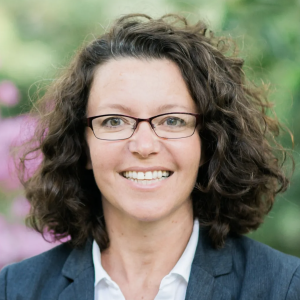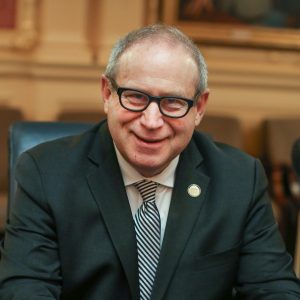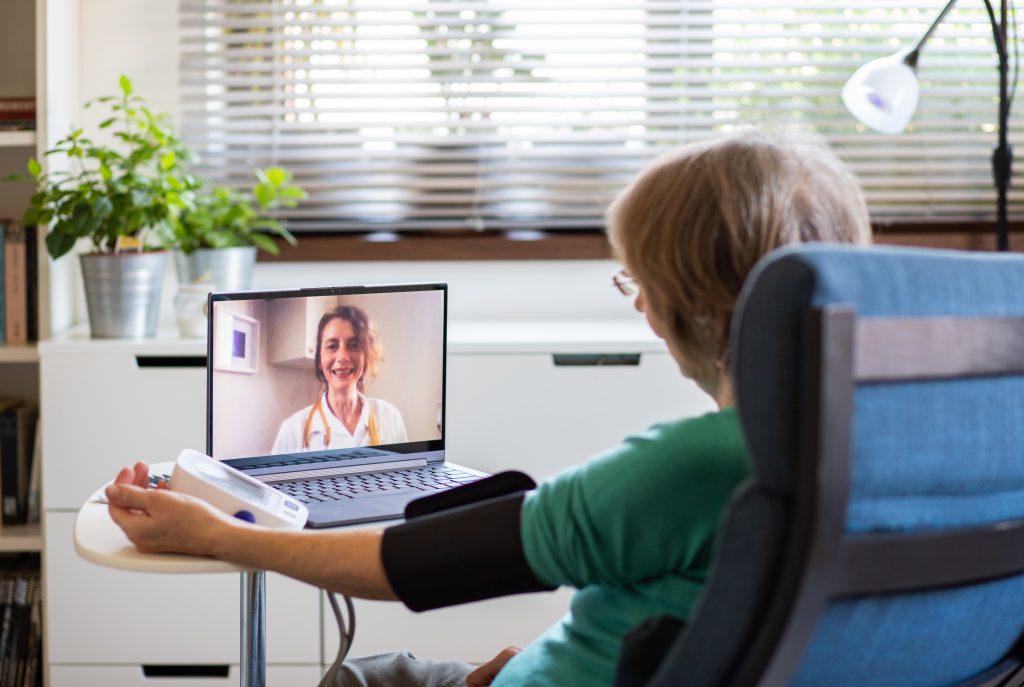Earlier this year under the leadership of House Speaker Don Scott, the Virginia House of Delegates launched the Select Committee for Rural and Small-Town Health Care to study challenges faced by rural counties and small towns in accessing quality health care.
The committee is tasked with developing actionable recommendations by November 15, 2024, that will be proposed in the 2025 legislative session to improve health care access across the Commonwealth.

“This committee was really started because of the disparities that we see in health care outcomes, in particular to folks that can’t access hospitals and brick and mortar health clinics,” said Del. Amy Laufer, who represents the 55th District and serves on the select committee. “We’ll visit with rural communities across the Commonwealth to better understand challenges unique to those regions and hear from professionals in the field already working to address health care barriers.”
The first committee meeting took place in April 2024 at Southwest Virginia Community College and focused on addressing workforce recruitment and retention. VTN’s Board Chair, Karen Rheuban, also presented the benefits of telehealth and important considerations for implementation of a successful telehealth program.

In June, the second meeting agenda covered addressing oral and maternal health care needs and the Virginia health safety net. In July, the committee heard from providers across many sectors in health care. It meets again Sept. 16. “Accessing care in general is a real problem, not just in Virginia, but all over the United States,” said Del. Mark Sickles, who also serves on the committee and represents the 17th District. “There are community members that can’t afford health insurance and don’t qualify for Medicaid. That’s a challenge for all of rural Virginia that we hope to address.”
VTN recently connected with Laufer and Sickles to learn more about the focus areas of the committee, early findings of its work, and barriers to overcome.
Addressing Workforce and Staffing Shortages
Del. Laufer: There is a diminishing workforce, and rural areas are being especially impacted by a lack of nurses, doctors, specialists… the whole spectrum. We’re trying to come up with more unique ways to help incentivize providers to be in those areas.
Del. Sickles: There is funding for professions that are in a shortage, for instance, to support anesthesiology and psychiatry programs. But we need to look at expanding these programs to produce even more health care professionals. On the education side, we’re trying to support and promote programs like Virginia’s Community College System, which produced the two-year nursing degree. This is a critical program.
Enhancing Broadband Access for Telehealth Usage
Del. Laufer: While there are federal and state funded initiatives and great partnerships with our localities in terms of building out broadband systems, we’re still seeing several gaps in some of these rural areas. This year, legislation has made progress related to the connection to the polls themselves. Details like who will pay for the hookups to the polls have finally been decided. Establishing who is responsible will now allow these folks to get moving on expanding broadband.
Del. Sickles: Telehealth is a big part of the solution for some of the challenges we’re seeing. It can’t solve when a patient needs to be in the physical presence of a provider, but its usage is critical in rural areas and small towns of Virginia, especially for mental health needs.
Effects of Billing and Reimbursement
Del. Laufer: I’m really grateful for all the strides in legislation before me that have really allowed for Medicaid, Medicare and private insurance companies to now bill for telehealth, which I think was a real barrier in the beginning. We’re discovering the need for audio-only telehealth offerings, and legislation is updating policies to allow for reimbursement of audio-only sessions.
Del. Sickles: Small town and rural hospitals are overly dependent on Medicaid and Medicare payers, which can make it challenging for small hospitals and practices to stay open. There aren’t enough commercial insurance payers being used in rural regions, and that’s a struggle. There’s more room in the future for increased subsidies.
Closing the Gap for Transportation
Del. Sickles: The main takeaway I heard coming out of the committee’s Tazewell trip was that that once patients find a provider willing to take Medicaid there is a challenge in getting that patient to them. We need a solution to this transportation issue that has come up in multiple meetings. We’re going to have to think of some more creative ways to get people access to transportation to also see specialists and providers that are not available in their town.
For more information about this committee, meeting minutes, and access to topics presented, visit virginiageneralassembly.gov.
Additional Resources
Low-Cost Broadband Options:
- Comcast (Xfinity): Internet Essentials & Internet Essentials Plus
- Cox Communications: ConnectAssist & Connect2Compete
- Breezeline: Internet Assist
- Charter (Spectrum): Internet Assist
- Altice (Optimum): Optimum Internet
Recent blogs on reimbursement and coverage:
- CMS Issues Proposed Rule Governing Telehealth for 2025
- As telemedicine has evolved, clarity on coverage has become all the more important

